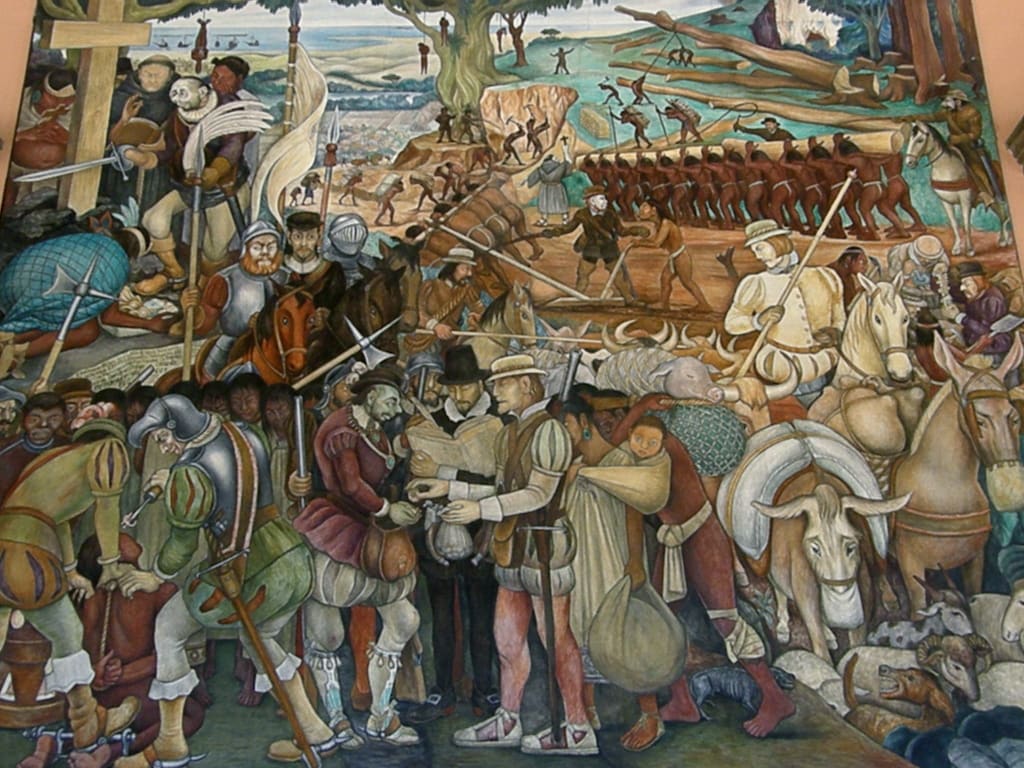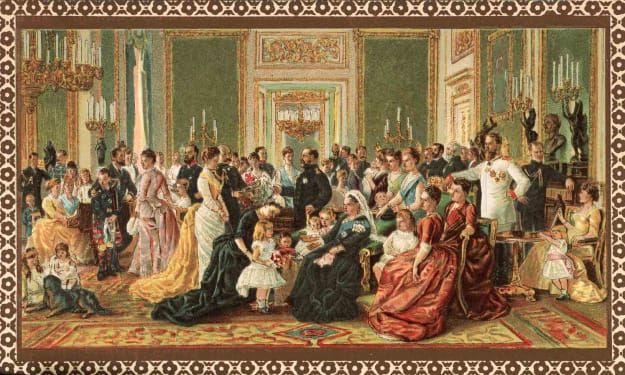"Colonial Dreams and Revolutionary Realities"
The Complex Tapestry of Colonial Dreams and Revolutionary Realities

In the annals of history, the era of colonial dreams and revolutionary realities stands as a pivotal chapter—a tale of exploration, ambition, and the inexorable forces that shaped the destinies of nations. As European powers embarked on ambitious ventures to establish colonies across the globe, the collision of dreams with the harsh realities of colonization would set the stage for revolutionary upheavals and the birth of new nations.
The Age of Exploration, spanning the 15th to the 17th centuries, witnessed a fervent desire among European powers to expand their influence and amass wealth through overseas trade. The Portuguese, Spanish, Dutch, French, and English set sail to distant shores, driven by dreams of discovering untold riches, establishing trade routes, and extending their imperial reach.
The exploration of the Americas, Africa, and Asia unveiled landscapes and cultures previously unknown to Europeans. While the initial encounters were often marked by curiosity and awe, the subsequent establishment of colonies brought forth the clash of civilizations. The dreams of establishing lucrative trade routes and extracting wealth from the colonies collided with the harsh realities of exploitation, cultural clashes, and the subjugation of indigenous peoples.
In the Americas, the Spanish conquistadors sought gold, glory, and the conversion of indigenous populations to Christianity. The dreams of El Dorado, a mythical city of gold, fueled expeditions into the heart of South America. However, the quest for riches resulted in the brutal conquest of empires like the Aztecs and the Incas, leaving a trail of devastation and altering the course of indigenous societies.
In North America, the dreams of a "New World" enticed English settlers seeking religious freedom, economic opportunity, and a fresh start. The establishment of the Jamestown colony in 1607 marked the beginning of English colonization, but the dream of harmonious coexistence with Native American populations gave way to conflict and dispossession.
As European powers vied for dominance in Africa and Asia, colonial dreams manifested in the establishment of trading posts, forts, and plantations. The Dutch East India Company, for instance, sought to monopolize the spice trade in the East Indies, while the British East India Company aimed to tap into the wealth of the Indian subcontinent. These colonial ambitions brought prosperity to the European powers but often came at the expense of local populations and cultures.
The dreams of economic prosperity fueled the transatlantic slave trade, a grim chapter in history that saw millions of Africans forcibly transported to the Americas to toil on plantations. The harsh realities of slavery, marked by cruelty and dehumanization, stood in stark contrast to the ideals of liberty and enlightenment that were gaining traction in Europe.
However, the collision of dreams with the harsh realities of colonial exploitation sowed the seeds of discontent and resistance. The American Revolution, sparked by grievances over taxation and a desire for self-determination, saw the birth of the United States as a sovereign nation in 1776. The dreams of liberty, equality, and self-governance resonated far beyond the shores of North America, inspiring subsequent revolutionary movements across the globe.
In the Americas, the wave of independence movements in the 19th century, from Simón Bolívar's campaigns in South America to the Mexican War of Independence, shattered the colonial dreams of European powers. The dreams of freedom and national sovereignty, once considered radical, became the rallying cries of burgeoning nations as they cast off the shackles of colonial rule.
Similarly, in Africa and Asia, the 20th century witnessed a surge of anti-colonial movements that challenged the dreams of European imperial powers. The struggles for independence in countries like India, Ghana, and Algeria heralded the end of colonial empires and the dawn of a new era.
The era of colonial dreams and revolutionary realities serves as a complex tapestry that weaves together the ambitions of exploration, the harsh consequences of exploitation, and the eventual quest for freedom. It is a tale of dreams deferred, reshaped, and sometimes realized through the crucible of historical forces. As we reflect on this transformative period, we find a nuanced narrative that challenges simplistic notions of triumph and tragedy, inviting us to grapple with the multifaceted legacy of colonialism and the enduring quest for self-determination.
About the Creator
Andrew
I collect whispers of dreams and spin them into tales. Let me unlock the doors of your imagination. Come, turn the pages and wander through the worlds I weave.
Enjoyed the story? Support the Creator.
Subscribe for free to receive all their stories in your feed. You could also pledge your support or give them a one-off tip, letting them know you appreciate their work.






Comments
There are no comments for this story
Be the first to respond and start the conversation.